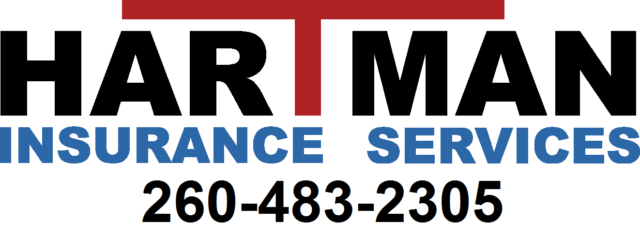Products
At Hartman Insurance Services we strive to help others make informed decisions about health and life insurance. Contact our office at (260) 483-2305 to select a plan that works best for you and your family.
We understand that your insurance needs are as unique as you are. That’s why we offer products for every stage of life:
For Medicare Recipients:
- Medicare Advantage
- Medicare Supplements
- Part D – Prescription Drug Plans
For Non Medicare Individuals:
- Major Medical/ACA
- Short Term Medical
For Everyone:
- Life Insurance
- Dental, Vision, and Hearing
- Foreign Travel
- Cancer
- Heart Attack/Stroke
- Hospital Indemnity
- Final Expense
MEDICARE ADVANTAGE
Medicare Advantage Plans (Part C)
These plans offer all of the benefits that Original Medicare Parts A and B provide and sometimes include Part D Prescription Drug benefits. The following definitions are for different type of Medicare Advantage Plans.
HMO
Health Maintenance Organization With this type of plan you must receive care through a network of local doctors and hospitals. Your primary care provider (PCP) oversees your care.
PPO – Prefered Provider Network
With this type of plan, you have access to a local network of doctors and hospitals. Plus, you can see providers out-of-network, generally at a higher cost, as long as they participate in Medicare and accept the plan.
PFFS – Private Fee for Service
You can go to any Medicare-approved doctor, other health care approved provider, or hospital that accepts the plan’s payment terms and agrees to treat you. This type of plan MAY or MAY NOT include Part D prescription drug coverage.
For a full list of available carriers please contact our office.
MAJOR MEDICAL / ACA
Major Medical health insurance is coverage for non-Medicare consumers that covers medical/hospital expenses as well as some prescription drugs. Since the implementation of the Affordable Care Act (ACA), all new qualified comprehensive health plans are required to meet ten minimum essential coverage standards.
Major Medical health insurance is sometimes offered by employers to their employees. If an employee is not offered coverage or does not meet the requirements to obtain coverage through his employer, he is required by law to obtain individual creditable coverage in order to avoid a penalty under the ACA.
Premium Subsidies are available for families earning up to 400% of the federal poverty level (FPL) in the form of tax credits provided under the ACA. Families earning less than 250% of the FPL are also eligible for additional assistance for out-of-pocket health care expenses.
Short Term health insurance was originally designed to bridge any gap in insurance between major life events such as a change in jobs, a divorce, or retirement prior to being Medicare-eligible.
Since the implementation of the Affordable Care Act (ACA), short term health insurance policies have changed drastically. They are NOT considered minimum essential coverage and therefore do not qualify as creditable coverage to avoid the penalty under the ACA. As of April 1, 2017, short term policies can last no longer than 90 days.
Short Term health insurance is available year round and provides coverage for catastrophic events. They exclude benefits for any pre-existing conditions and typically do not cover maternity, mental health, or preventative care.
For a preview of some of the available products, click the click here button below:
MEDICARE SUPPLEMENTS
Medicare Supplement Insurance (Medigap) policies, are sold by private companies, and can help pay some of the health care costs that Original Medicare doesn’t cover, like copayments, coinsurance, and deductibles.
Some Medigap policies also offer coverage for services that Original Medicare doesn’t cover, like medical care when you travel outside th U.S. If you have Original Medicare and you buy a Medigap policy, Medicare will pay its share of the Medicare-approved amount for covered health care costs then your Medigap policy pays its share. A Medigap policy is different from a Medicare Advantage Plan. Those plans are an alternate way to get Medicare benefits, while a Medigap policy only supplements your Original Medicare. Medicare-Approved Amount = In Original Medicare, this is the amount a doctor or supplier that accepts assignment can be paid. It may be less than the actual amount a doctor or supplier charges. Medicare pays part of this amount and you’re responsible for the difference.
All Medicare Supplement companies are required to provide a standardized benefits for each plan available, all of which are labeled with a different letter. The differences are in the company, pricing, and / or additional value added services.
We offer a number of different Medicare Supplement plans through many of the Major Companies Available in our area.
For a full list of available carriers please contact our office.
PART D – PRESCRIPTION DRUG COVERAGE
There are 2 ways to get Medicare prescription drug coverage:
1. Medicare Prescription Drug Plans. These plans (sometimes called “PDPs”) add drug coverage to Original Medicare, some Medicare Cost Plans, some Medicare Private Fee-for-Service (PFFS) plans, and Medicare Medical Savings Account (MSA) plans. You must have Part A and / or Part B to join a Medicare Prescription Drug Plan.
2. Medicare Advantage Plans (like HMOs or PPOs) or other Medicare health plans that offer Medicare prescription drug coverage. You get all of your Part A, Part B and prescription drug coverage (Part D), through these plans. Medicare Advantage Plans with prescription drug coverage are sometimes called “MA-PDs.” Remember you must have Part A and Part B to join a Medicare Advantage Plan, and not all of these plans offer drug coverage.
Important Note: Failing to enroll in Part D coverage when you are first eligible could result in a life long penalty upon enrollment.
For a full list of available carriers please contact our office.
SHORT TERM MEDICAL
What Is Short-Term Health Insurance?
Short-term health insurance is meant to provide temporary coverage for people transitioning between traditional health policies, perhaps because they’re changing jobs. Short-term plans are usually accepted at more doctors’ offices and hospitals compared with traditional insurance plans, which are often limited to narrow networks.
Not All Short–Term Health Insurance Plans Are Alike The exact coverage and benefits provided by short–term health insurance vary from plan to plan and depend upon the particular policy and insurance company issuing the plan. Call our office to discuss your options 260-483-2305.
LIFE INSURANCE
Why do I need Life Insurance?
Life insurance is an essential part of financial planning. One reason most people buy life insurance is to replace income that would be lost with the death of a wage earner. The cash provided by life insurance also can help ensure that your dependents are not burdened with significant debt when you die. Life insurance proceeds could mean your dependents will not have to sell assets to pay outstanding bills or taxes. An important feature of life insurance is that generally no income tax is payable on proceeds paid to beneficiaries. The death benefit of a life policy owned by a corporation may be included in the calculation of the alternative minimum tax.
How much Insurance do I need?
Before buying life insurance, you should assemble personal financial information and review your family’s needs. There are a number of factors to consider when determining how much protection you should have. These include:
- any immediate needs at the time of death, such as final illness expenses, burial costs and estate taxes.
- funds for a readjustment period, to finance a move or to provide time for family members to find a job.
- ongoing financial needs, such as monthly bills and expenses, day-care costs, college tuition or retirement.
Although there is no substitute for a careful evaluation of the amount of coverage needed to meet your needs, one rule of thumb used: five to seven times annual gross income.
DENTAL, VISION, AND HEARING
Dental, Vision, and Hearing (DVH) insurance are all ancillary policies that can be purchased in addition to your Medicare or Major Medical policies.
Some companies offer plans that combine both Dental and Vision, or all three into one single policy. Other companies allow you to purchase each one individually. DVH policies typically include a deductible, policy year maximum benefit, as well as a waiting period on non-preventative benefits.
Some policies contain networks where you can obtain a bigger discount. Many policies base payment off of usual and customary charges while others pay a flat rate.
GET QUOTE:
FOREIGN TRAVEL
If you are looking to travel outside of the U.S., you may want to consider Foreign Travel insurance. This type of insurance provides emergency medical coverage when traveling outside of the country and usually provides high policy maximums with a flexible deductible. The policy is priced according to age, destination, length of the trip, and amount of deductible.








